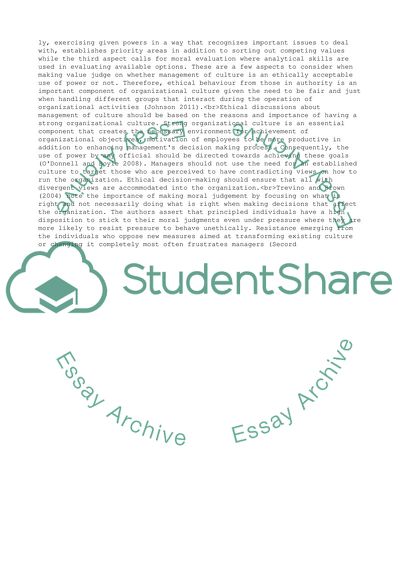Cite this document
(“Is the management of culture an ethically acceptable use of power Essay”, n.d.)
Is the management of culture an ethically acceptable use of power Essay. Retrieved from https://studentshare.org/management/1625589-is-the-management-of-culture-an-ethically-acceptable-use-of-power
Is the management of culture an ethically acceptable use of power Essay. Retrieved from https://studentshare.org/management/1625589-is-the-management-of-culture-an-ethically-acceptable-use-of-power
(Is the Management of Culture an Ethically Acceptable Use of Power Essay)
Is the Management of Culture an Ethically Acceptable Use of Power Essay. https://studentshare.org/management/1625589-is-the-management-of-culture-an-ethically-acceptable-use-of-power.
Is the Management of Culture an Ethically Acceptable Use of Power Essay. https://studentshare.org/management/1625589-is-the-management-of-culture-an-ethically-acceptable-use-of-power.
“Is the Management of Culture an Ethically Acceptable Use of Power Essay”, n.d. https://studentshare.org/management/1625589-is-the-management-of-culture-an-ethically-acceptable-use-of-power.


